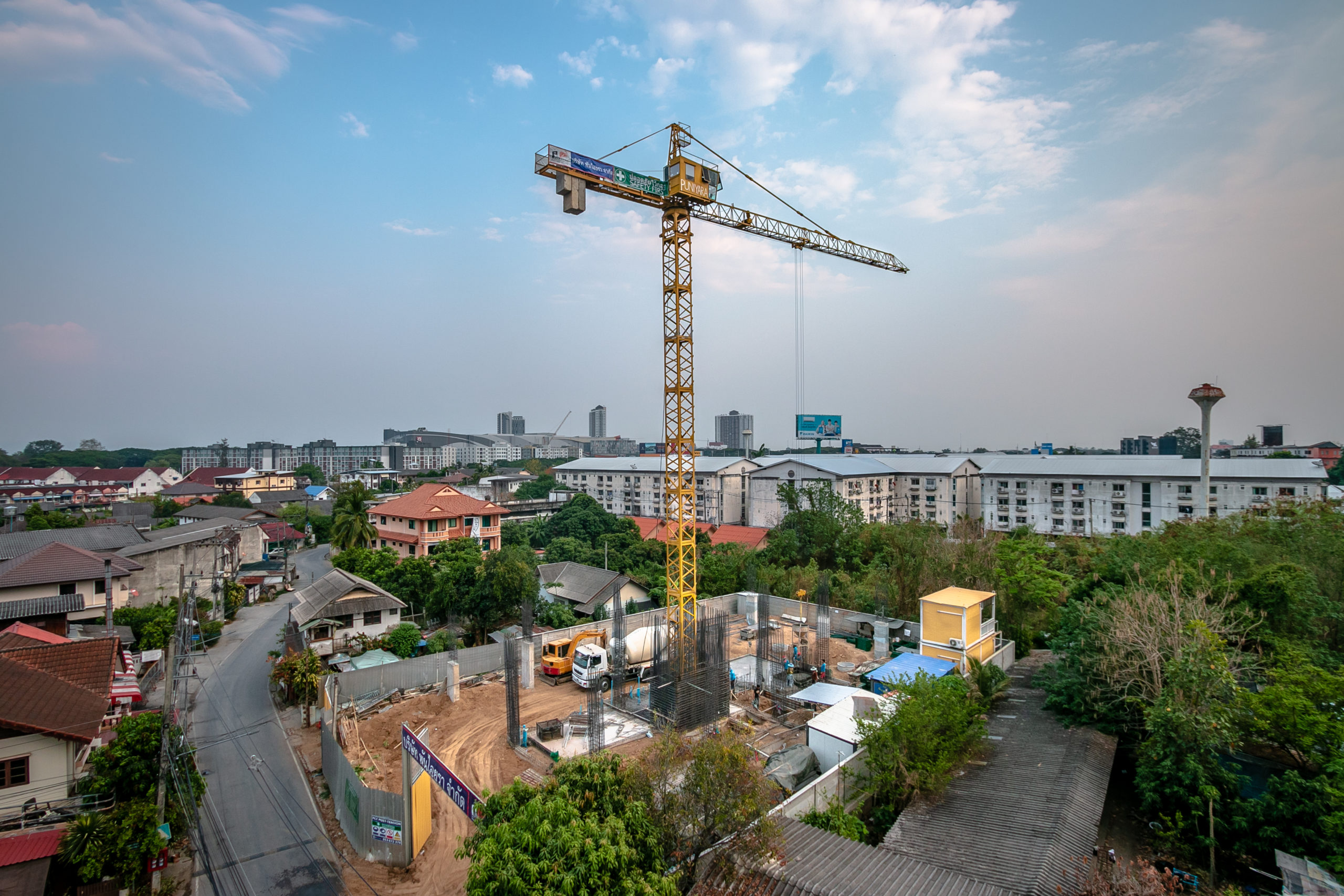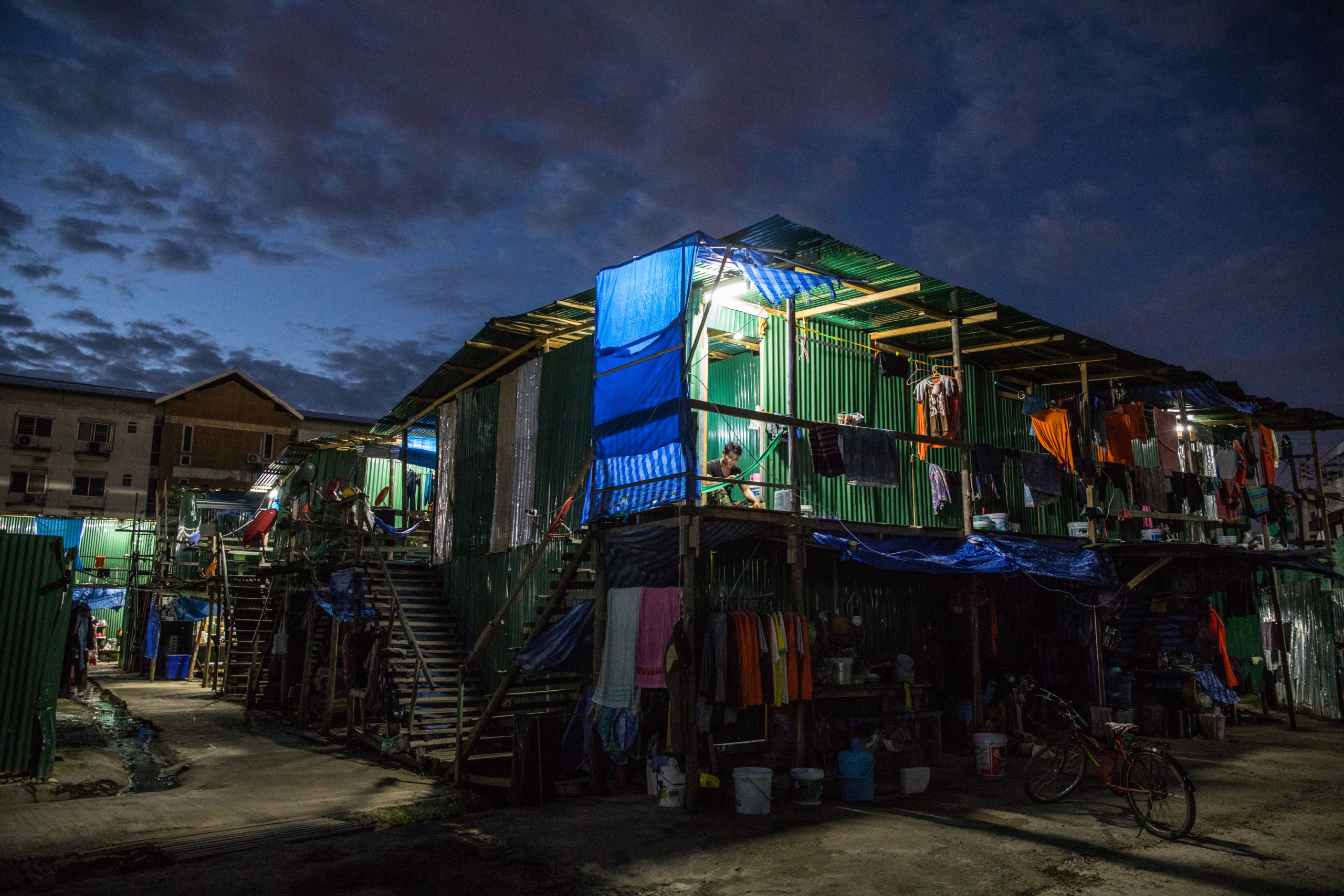Sustainable construction for all

The global conversation on sustainability in real estate is moving rapidly, especially in terms of the environment. Companies are under greater pressure to demonstrate how they are reducing or eliminating their carbon footprint and designing and constructing buildings in an environmentally friendly and energy-efficient way. With the built environment’s contribution to CO2 levels estimated to be up to 40% of global emissions, Green Buildings are now seen as an imperative to meet the Paris Agreement goals.
Despite this rapid progress on environmental sustainability, social sustainability is lagging behind. Most real estate and construction companies’ social sustainability strategies focus on the impact on surrounding communities during the construction phase but rarely on the predominantly migrant workforce who actually build our homes.
The Thai construction sector is primarily driven by migrant workers from Myanmar and Cambodia, who often arrive as families or as married couples who tend to have children while in Thailand. This means that tens of thousands of children throughout Thailand live in temporary worker camps, often in unsanitary and unsafe conditions, where access to key public services is a major challenge due to a combination of lack of information, documentation, and limited Thai language ability. While we can see these camps from our luxury condos or see the workers on the road stuck in traffic, we rarely think about the conditions in which they and their families live.
At the height of the pandemic in Bangkok during the summer of 2021, these sites came directly under the spotlight as 600 camps were forced to shut themselves off from society and prevent movement, affecting up to 80,000 workers. During this time, prolonged work stoppages and movement restrictions put families on the brink of crisis, while many companies provided food to their workforce, their children, especially young children and newborns, were often overlooked.
Baan Dek Foundation has been working both with these communities and construction companies for over 10 years, and crucially has worked with representatives of pioneering companies, Visavapat Co. Ltd., MQDC and Syntec Construction PLC., and UNICEF Thailand to develop solutions and practical tools to improve these communities’ conditions and access to services. This deep experience and expertise from the ground led to the creation of the Building Social Impact (BSI) Initiative, an innovative and private sector-driven approach to create a sustainable social impact in the construction and real estate sector for migrant workers and their families.
At the core of the initiative is the BSI Framework for Action, a set of 12 actionable recommendations for construction companies to take action on. These recommendations, when followed, improve the living conditions in construction site camps, as well as workers and children’s access to essential public services, such as healthcare, education and social services. This Framework comes with a Toolkit and training to guide companies in the process, from the operational to management level.

This initiative represents tangible actions and yields tangible and measurable results, both for people and businesses.
“This camp is different from my old camp. This camp takes good care of its members. These days, I am so delighted that the company helps my child enrol into school, providing transportation to and from school,” shares a 41-year-old worker in a Visavapat construction site camp.
MQDC’s Kanin Kaewin said: “I think Thailand has high potential, and with the economic growth of the country, the demand for construction workers will still be there. One day, economic growth will spread to nearby countries as well, and these workers will return to their countries with this standard.”
With Thai construction companies facing a labour shortage, and property developers dealing with resulting costs, the business case for improving worker welfare is clear. This need is further compounded by Thailand’s leadership in the field of business and human rights, which is already mandating publicly listed companies to disclose ESG data as well as demonstrate how they are integrating human rights due diligence in their business operations.
More: ESG Practices in the Asia Pacific real estate sector
At a time when the sustainability landscape in Thailand is rapidly evolving and maturing as well as converging with improved regulatory environments, especially in regard to business respect for human rights, it is crucial that the construction and real estate sector do not fall behind. While Global Compact Network Thailand, part of a UN global initiative to leverage corporate action for the SDGs and human rights, has over 70 members, none represent the construction sector.
The real estate and construction sector have the opportunity to not only catch up with this movement but take a leading role, the BSI Initiative presents a model which goes beyond traditional CSR programs, which have in fact now been excluded as evidence of social sustainability by the Thai Sustainability Investment Index. Businesses are instead expected to address social issues within their value chain, this means identifying all stakeholders who are impacted by business activities, engaging with those stakeholders and minimising negative impacts. By joining the BSI Initiative, construction and real estate companies can get ahead of the trend and become leaders in the dynamic field of sustainability by accessing a ready-made and tailored framework which offers low-cost yet high impact solutions for migrant workers and their families.
James Eckford, the research and program quality coordinator at Baan Dek Foundation wrote this article. The Thai-registered foundation is the official ESG partner of PropertyGuru Asia Property Awards. To find out more about the Building Social Impact Initiative, please visit buildingsocialimpact.org or send an email directly to [email protected].
Recommended
Why everyone is moving to Selangor and Johor: Malaysia’s real estate comeback
Malaysia’s upturn in fortunes is especially prevalent in secondary destinations such as Selangor and Johor
Penang’s silicon boom: How the US-China tech war is supercharging local real estate
Penang’s booming semiconductor industry has created ripples within the local real estate sector
New leader, new opportunities: How Hun Manet is shaking up Cambodia’s real estate game
Hun Manet is overseeing decent economic growth and widening access to the country’s real estate market for foreigners
Singapore embraces inclusive housing reforms amid resilient demand
The Lion City’s regulatory strength continues to exert appeal for international investors








